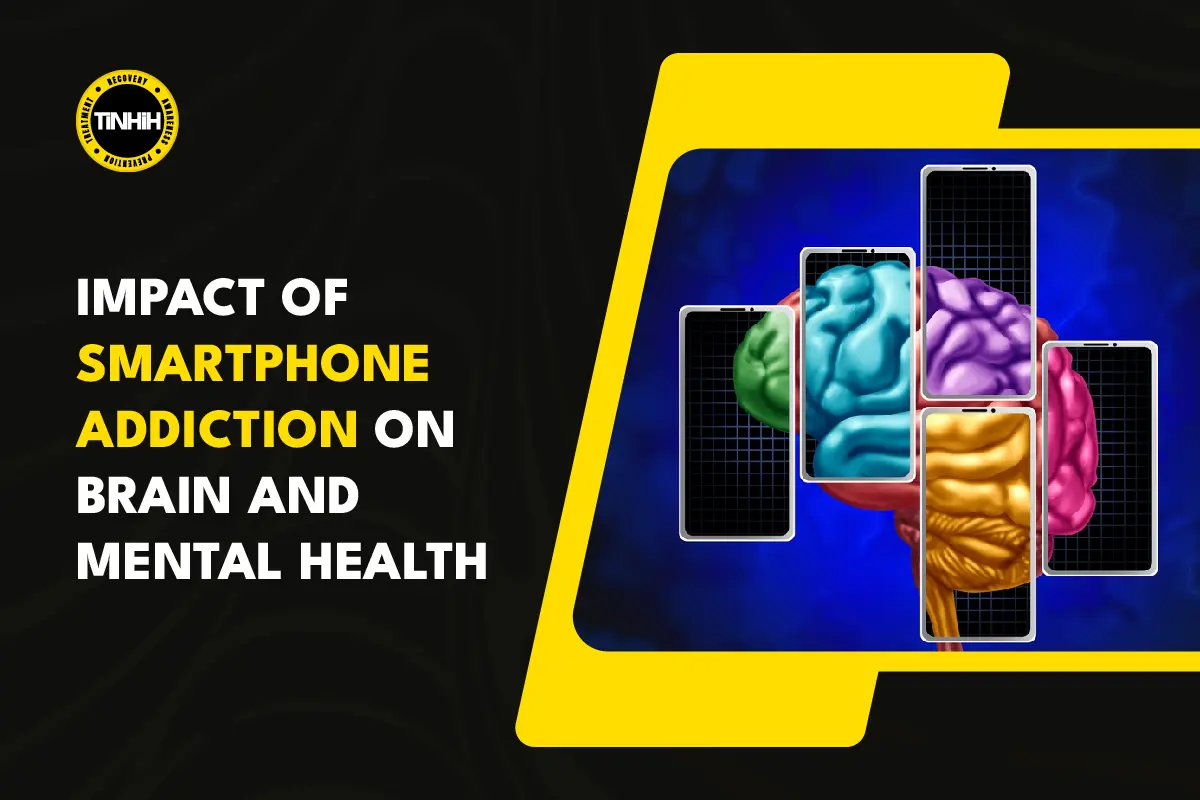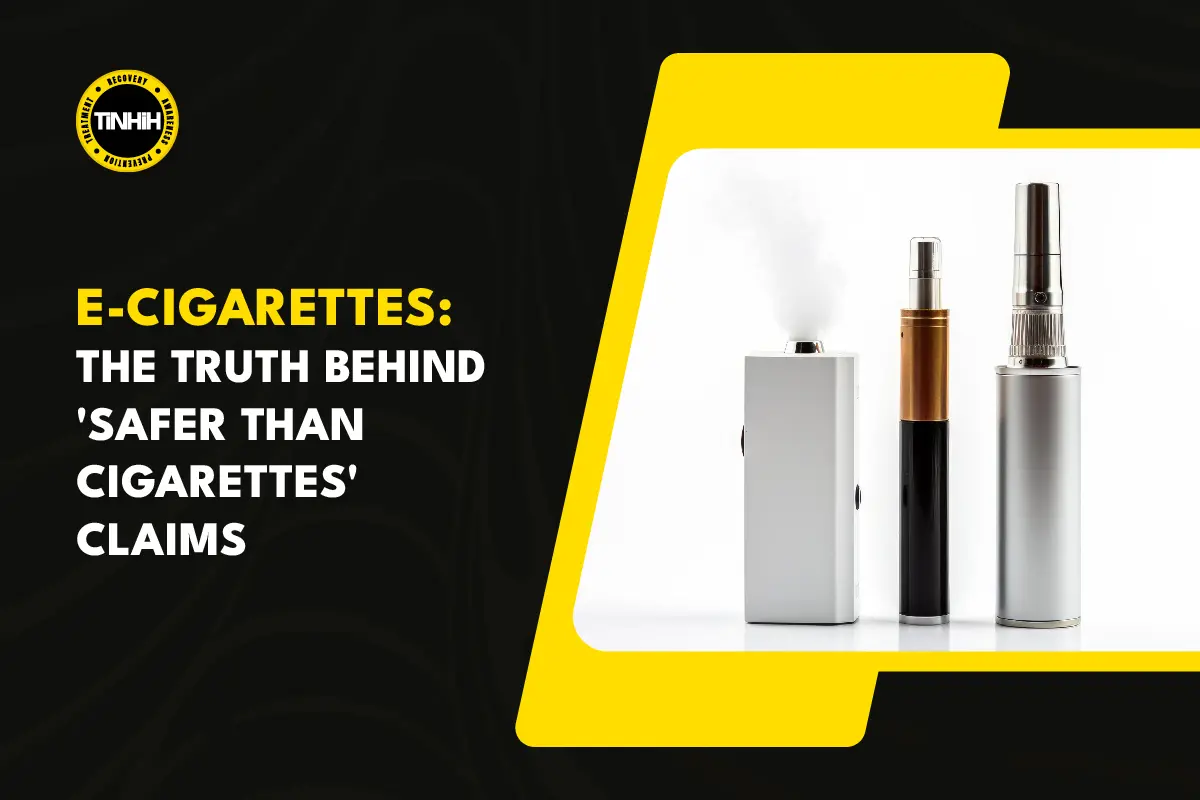
Impact of Smart Phone Addiction on Brain and Mental Health

Smartphones have become ubiquitous, with a significant portion of the global population relying on these devices for communication, information, and entertainment. The accessibility and convenience offered by smartphones have revolutionized the way we interact with the world around us, enabling instant connectivity and access to a vast array of digital resources.
However, alongside the benefits of smartphone technology, there has been a concerning rise in smartphone addiction a phenomenon that has captured the attention of researchers, healthcare professionals, and the general public alike.
What Is Smart Phone Addiction?
Smartphone addiction, also known as problematic or excessive smartphone use, is characterized by a compulsive reliance on smartphones that interferes with daily functioning and contributes to adverse consequences for individuals’ well-being.
Similar to other forms of behavioral addiction, such as gambling or substance abuse, smartphone addiction involves a loss of control over one’s smartphone usage despite negative consequences.
At its core, smartphone addiction revolves around the concept of reinforcement and reward. Smartphones are designed to deliver instant gratification and stimulation through various features, including social media, gaming apps, and instant messaging platforms.
These digital activities trigger the release of dopamine, a neurotransmitter associated with pleasure and reward, in the brain’s reward pathways.
Role of Dopamine in Smartphone Addiction
The role of dopamine in smartphone addiction is crucial, as it reinforces addictive behavior and creates a cycle of craving and compulsive smartphone use. With each notification, like, or message received, individuals experience a surge of dopamine, leading to feelings of pleasure and satisfaction.
Over time, the brain becomes increasingly desensitized to these stimuli, prompting individuals to seek out more frequent and intense forms of digital engagement to achieve the same level of satisfaction.
Neurological Effects of Smartphone Addiction
Excessive smartphone use can have profound effects on the structure and functioning of the brain, leading to neurological changes that impact various cognitive processes and behaviors. Research has shown that prolonged and intense smartphone addiction can result in structural alterations in key brain regions responsible for decision-making, impulse control, and emotional regulation.
How Excessive Smartphone Use Can Lead to Structural Changes in The Brain?
One of the primary ways in which excessive smartphone use can affect the brain is through the phenomenon of neuroplasticity. Neuroplasticity refers to the brain’s ability to reorganize itself in response to experiences and environmental stimuli.
When individuals engage in repetitive and prolonged smartphone use, particularly activities that stimulate the release of dopamine, such as social media browsing or gaming, they may induce changes in the structure and connectivity of their brains.
Studies have documented alterations in gray matter volume and density in individuals with smartphone addiction, particularly in regions of the brain associated with executive functions and self-regulation.
For example, research has found reductions in gray matter volume in the prefrontal cortex, a brain region involved in decision-making, impulse control, and goal-directed behavior. These structural changes may contribute to difficulties in self-control and decision-making observed in individuals with smartphone addiction.
Psychological Effects of Smartphone Addiction
Smartphone addiction is associated with a range of psychological effects, including heightened levels of anxiety and depression, as well as increased feelings of loneliness and social isolation. Recognizing the impact of excessive smartphone use on mental health is essential for promoting healthier digital habits and fostering a more balanced approach to technology use.
Relationship Between Smartphone Addiction and Mental Health Disorders, such as Anxiety and Depression
The relationship between smartphone addiction and mental health disorders, such as anxiety and depression, is a topic of growing concern among researchers and healthcare professionals.
Numerous studies have documented the detrimental impact of excessive smartphone use on psychological well-being, highlighting the significant associations between smartphone addiction and various mental health conditions.
Anxiety and depression are among the most commonly reported mental health disorders associated with smartphone addiction. The constant connectivity and exposure to digital stimuli inherent in smartphone use can contribute to heightened levels of stress and anxiety.
Individuals with smartphone addiction may experience a constant sense of urgency and fear of missing out (FOMO), leading to heightened levels of anxiety and hypervigilance.
Negative Effects of Smartphone Addiction on Cognitive Functions
The negative impact of smartphone addiction on cognitive functioning is a growing concern, as evidenced by a plethora of studies highlighting its detrimental effects on attention span, memory, and overall cognitive performance.
Smartphone addiction has been associated with deficits in working memory and episodic memory. Working memory, which enables the temporary storage and manipulation of information, is crucial for cognitive tasks such as problem-solving and decision-making.
- Excessive smartphone use has been linked to a range of cognitive impairments that can have significant implications for academic, professional, and daily functioning.
- Excessive smartphone use can overload working memory capacity, leading to impaired cognitive flexibility and reduced efficiency in processing information.
How Smartphone Use Before Bedtime Can Disrupt Sleep Patterns and Interfere with The Production of Melatonin
The use of smartphones before bedtime has become increasingly common in today’s digital age, but this habit can have significant repercussions on sleep quality and overall well-being.
The blue light emitted by smartphone screens can disrupt the body’s natural sleep-wake cycle, known as the circadian rhythm, and interfere with the production of melatonin, a hormone that regulates sleep.
Exposure to blue light from smartphones suppresses the production of melatonin, making it more difficult for individuals to fall asleep and achieve restorative sleep. Melatonin plays a crucial role in signaling to the body that it is time to rest and sleep.
However, exposure to artificial light, particularly blue light emitted by electronic devices like smartphones, can delay the onset of melatonin release, leading to prolonged periods of wakefulness and difficulty in initiating sleep.
Strategies for Managing Smartphone Addiction
Managing smartphone addiction requires a proactive approach and a commitment to implementing strategies that promote healthier digital habits and foster a balanced relationship with technology. By incorporating practical tips and techniques into daily routines, individuals can regain control over their smartphone use and mitigate the negative effects of addiction on their well-being.
- One effective strategy for managing smartphone addiction is mindfulness practice. Mindfulness involves cultivating awareness of one’s thoughts, feelings, and behaviors without judgment.
By practicing mindfulness techniques such as meditation, deep breathing exercises, and mindful awareness of smartphone use, individuals can develop greater self-awareness and better regulate their impulses to reach for their phones compulsively.
Mindfulness can also help individuals become more attuned to the present moment and find alternative ways to cope with stress and boredom without relying on digital distractions.
- Therapists, counselors, and addiction specialists can provide valuable guidance and resources for addressing addictive behaviors and developing coping strategies for managing cravings and triggers.
- Cognitive-behavioral therapy (CBT) and behavioral interventions tailored to address smartphone addiction can help individuals identify underlying motivations for excessive smartphone use and develop healthier coping mechanisms.
Key Points Discussed in The Blog Post
The impact of smartphone addiction on brain health and mental well-being is a multifaceted issue that warrants careful consideration and proactive intervention. Throughout this blog post, we have explored the various ways in which excessive smartphone use can detrimentally affect cognitive functioning, emotional regulation, and overall quality of life.
We then delved into the neurological effects of smartphone addiction, discussing how excessive smartphone use can lead to structural changes in the brain and dysregulation of neurotransmitter systems involved in reward processing and emotional regulation.
We explored the psychological effects of smartphone addiction, highlighting its associations with anxiety, depression, and feelings of loneliness and social isolation. We also discussed the impact of smartphone addiction on cognitive functioning, including attention span, memory, and academic or professional performance.
It is essential to recognize the pervasive impact of smartphone addiction on brain health and mental well-being and to take proactive steps to address it. By raising awareness of the negative consequences of excessive smartphone use and promoting healthier digital habits, we can work towards fostering a more balanced relationship with technology and promoting overall well-being in today’s digital age.





